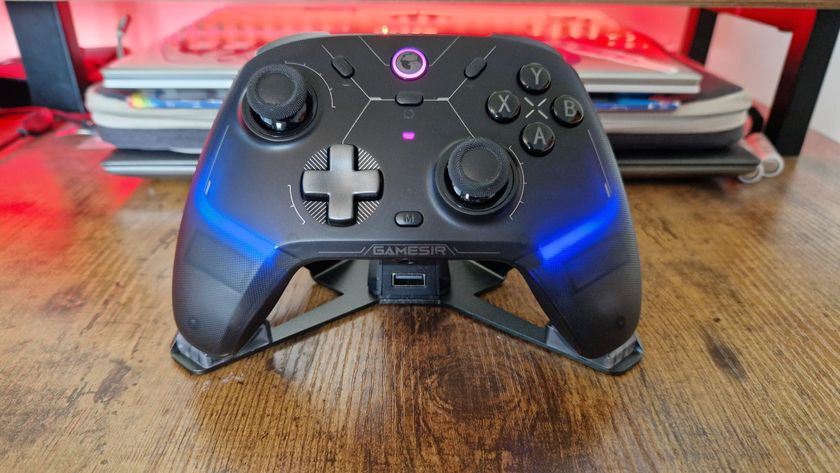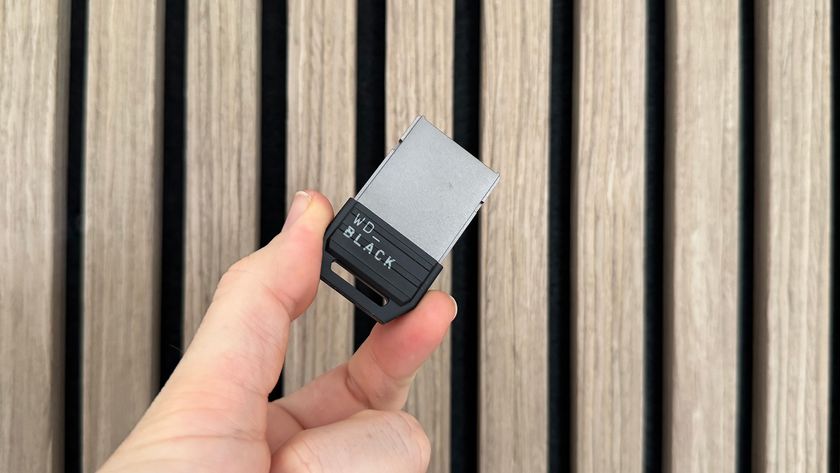12DOVE Verdict
Pros
- +
A massive tribute to a much-loved era
- +
So many creation tools at your disposal
- +
Over 100 different superstars to choose from
Cons
- -
Too much nostalgia for newer fans
- -
Gameplay hasnt changed nearly enough
- -
High learning curve on customization options
Why you can trust 12DOVE

The world of sports games--even fake sports games--is dominated by annual franchises that are inconsistent in their changes from year to year. After replacing the annualized SmackDown series with WWE 12 last year, THQ reestablished its pro wrestling prowess with updated graphics and controls. The second game in the new franchise, WWE 13, keeps the momentum going--but for all the talk of revolution from cover athlete CMPunk, WWE 13 is at its best when it's regressing, particularly to the late 1990s.
The in-ring action of WWE 13 is fairly untouched from WWE 12, which is sufficient, because the faster pace of 12, along with its simplified interface, were some of that game’s best assets. Strikes and grapples are quick to execute, the wide range of reversal opportunities keeps fights unpredictable, and the recovery time from an attack is brief enough to keep the match moving while still maintaining the drama. No matter which characters are in the ring, the number of moves available to each player keeps the battles fairly varied.
With so much staying the same, WWE 13’s additions to the core gameplay are subtler, but appreciated. The tweaked physics move the action closer to reality, particularly in the way submissions work. The intense, button-mashing Breaking Point system is still in place, but now a superstar has a chance to pull themselves to the ropes to break the hold, an option missing in WWE 12. The “real” feel is further heightened because, in addition to setting the difficulty of a match, you can now set the “Experience.” Experience changes the amount of damage required to score a pin or submission, which makes the difference between a brief battle on Raw and an epic WrestleMania war. It’s a helpful tool for enhancing the drama in single and multiplayer.
The context-sensitive OMG moments--named after the frequent phrase shouted frequently by announcer Jim Ross--are another interesting aspect of building up match intensity. Charge up your momentum high enough and place your opponent in one of several specific areas (on a table, on top of a cage), and you can execute devastating, cinematic moves otherwise unavailable. OMGs add extra oomph to a match, though the number of OMG spots are limited to a handful of specific requirements, something developer Yuke’s would do well to expand on in the next WWE title.
Compared to the tweaks in the gameplay, the campaign has changed drastically for WWE 13. Fan-favorite Road to WrestleMania has been replaced with Attitude Era mode. A virtual trip through wrestling history, the lengthy campaigns take you through highlights of WWE’s popular programming that goes covers 1997 to 1999. You play as Stone Cold Steve Austin, The Rock, Mankind, and more during some of their biggest matches, all supported by an impressive collection of archival footage from the pivotal period.
Some might bemoan the loss of Road to WrestleMania, but students of WWE history will really embrace the new campaign. Thanks to the inclusion of dozens of superstars from the era (WWE 13 has the biggest roster in franchise history), the mode is a buffet of nostalgia for retro wrestling fans. Not everything is perfectly recreated: Stars of the era like Kurt Angle and Chyna are noticeably absent, and the particularly vulgar parts of the time have to be censored to fit the ESRB’s T rating. However, there are enough important feuds and moments included in the mode to make it impressively accurate. The only real complaint with Attitude is that the secondary objectives can be too vague at times.
If you’d rather not reminisce, WWE Universe mode is still in the game, as deep and decade-spanning as ever before. With even more customization options, players can plan, adjust, and most importantly play through years of weekly programming for Raw and SmackDown, as well as the monthly pay-per-views. The story options are a bit random and minor, but the sheer amount of modification available means you can transform it into as worthwhile a campaign as you can imagine.
Speaking of modifications, the WWE creator tools are as extraordinary as they’ve always been. Built up over the years by Yuke’s, the number of tools available for creating wrestlers, moves, storylines, and environments is still top of its class, though the vast amount of options can be daunting to newcomers. And no matter if you make dinosaur man or an indoor grass arena, it can be shared online in the extensive community features that accompany the standard multiplayer options over the internet.
For older fans, WWE 13 will likely be their favorite wrestling game in some time, a unique throwback that features the best wrestling gameplay currently available. Younger players will still have a huge selection of current stars and settings to enjoy while hopefully expanding their knowledge of Sports Entertainment. Either way, they’ll end up with the best wrestling package of the year, though we hope the gameplay is freshened up a little more next time.
This game was reviewed primarily on the Xbox 360.
More info
| Genre | Sports |
| Description | THQ's wrestling reboot of its premiere series hits its sophomore year with cover star CM Punk and a big emphasis on the Attitude Era. |
| Franchise name | WWE |
| UK franchise name | WWE |
| Platform | "Xbox 360","Wii","PS3" |
| US censor rating | "Teen","Rating Pending","Rating Pending" |
| UK censor rating | "","","" |
| Release date | 1 January 1970 (US), 1 January 1970 (UK) |
Henry Gilbert is a former 12DOVE Editor, having spent seven years at the site helping to navigate our readers through the PS3 and Xbox 360 generation. Henry is now following another passion of his besides video games, working as the producer and podcast cohost of the popular Talking Simpsons and What a Cartoon podcasts.
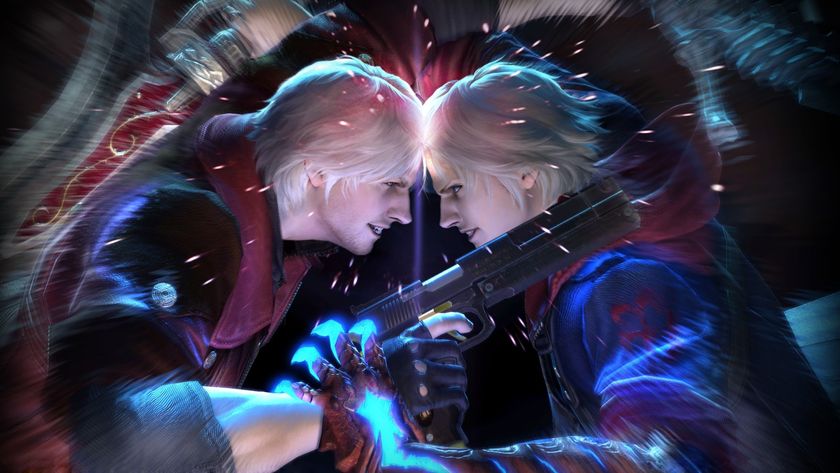
Devil May Cry anime star recalls playing the game for the first time, as he explains what makes it so special: "There's definitely a unique thing to it"
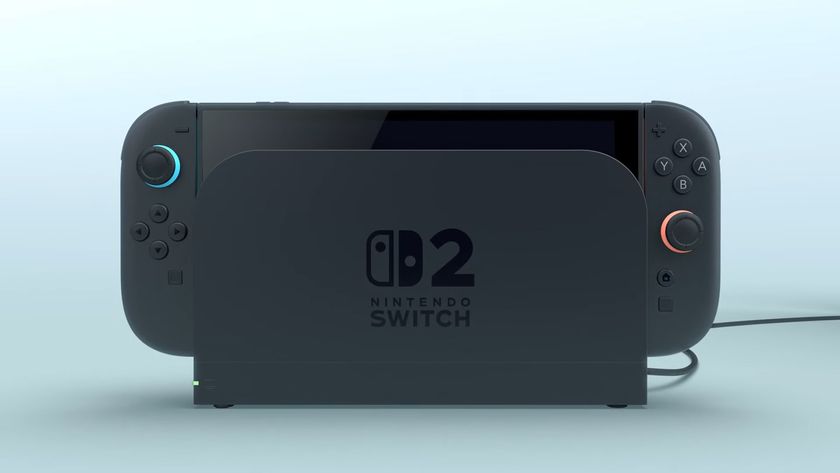
Everything announced at the Nintendo Switch 2 Direct
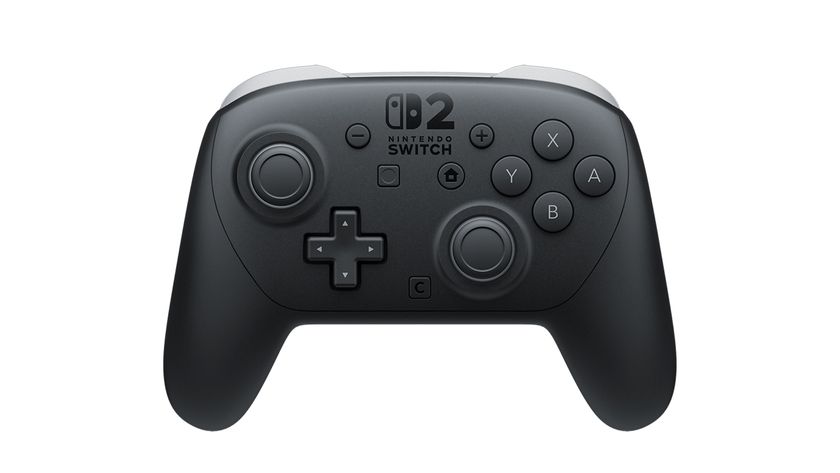
Nintendo has a "long-running project" to create "the pinnacle of all controllers" and it's not the Switch 2 – but the Switch 2 Pro comes close


